The last ten years have witnessed a crescendo in calls for a stricter international regulation of ‘counterfeit’ products. Concerns have emanated from big pharmaceutical companies as well as governments about the problem of counterfeiting in the drugs and pharmaceutical industry. Many governments have sought to curb this practice through enacting domestic anti counterfeiting laws. In the case of Uganda, it has followed suit by introducing the Uganda Anti Counterfeit Bill (2009), which aims to ‘…prohibit trade in counterfeit goods…’ and stipulates stiff penalties against violators. This Bill has elicited very strong reactions from both local and international civil organizations for a number of reasons, chief of which are the manner in which it defines counterfeits and counterfeiting, the mischief it is designed to cure, and its impact on access to medicines and the right to health. This comment reviews the current anti-counterfeit initiatives in Uganda, particularly the attempts at defining counterfeits. It also discusses the controversies and problems related to formulating a standard and acceptable definition of counterfeiting. It is argued that the lack of conceptual clarity on the relationship between Intellectual Property laws and public health concerns has contributed to this problem. Therefore, a rethink of this relationship in a manner that takes into account questions of access to medicines and human rights among others is necessary in order to address the problem of counterfeits.
Problems in Defining Counterfeiting: The Case of Uganda’s 2009 Proposed Anticounterfeit Law
- +256 (0) 414 532954
- huripec.law@mak.ac.ug
About Us
The Human Rights and Peace Center (HURIPEC), a semi-autonomous department under the School of Law was set up by Makerere University in 1993, as the first human rights center of its kind in Sub-Saharan Africa.
Quick Links
Physical Address
- The Human Rights and Peace Centre,
- P.O. BOX 7062 Kampala, Uganda
- School of Law,
- Makerere University
